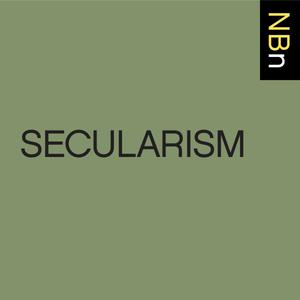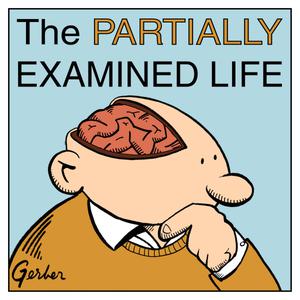
New Books in Secularism
Interviews with Scholars of Secularism about their New Books
- 56 minutes 15 secondsAmélie Barras, "Faith in Rights: Christian-Inspired NGOs at Work in the United Nations" (Stanford UP, 2024)
Faith in Rights: Christian-Inspired NGOs at Work in the United Nations (Stanford University Press, 2024) by Dr. Amélie Barras explores why and how Christian nongovernmental organizations conduct human rights work at the United Nations. The book interrogates the idea that the secular and the religious are distinct categories, and more specifically that human rights, understood as secular, can be neatly distinguished from religion. It argues that Christianity is deeply entangled in the texture of the United Nations and shapes the methods and areas of work of Christian NGOs.
To capture these entanglements, Dr. Barras analyzes—through interviews, ethnography, and document and archive analysis—the everyday human rights work of Christian NGOs at the United Nations Human Rights Council. She documents how these NGOs are involved in a constant work of double translation: they translate their human rights work into a religious language to make it relevant to their on-the-ground membership, but they also reframe the concerns of their membership in human rights terms to make them audible to UN actors. Faith in Rights is a crucial new evaluation of how religion informs Christian nongovernmental organizations' understandings of human rights and their methods of work, as well as how being engaged in human rights work influences these organizations' own religious identity and practice.
This interview was conducted by Dr. Miranda Melcher whose new book focuses on post-conflict military integration, understanding treaty negotiation and implementation in civil war contexts, with qualitative analysis of the Angolan and Mozambican civil wars.
Learn more about your ad choices. Visit megaphone.fm/adchoices
Support our show by becoming a premium member! https://newbooksnetwork.supportingcast.fm/secularism
24 December 2024, 9:00 am - 59 minutes 16 secondsLeslie Beth Ribovich, "Without a Prayer: Religion and Race in New York City Public Schools" (NYU Press, 2024)
The processes of secularization and desegregation were among the two most radical transformations of the American public school system in all its history. Many regard the 1962 and 1963 US Supreme Court rulings against school prayer and Bible-reading as the end of religion in public schools. Likewise, the 1954 Brown v. Board of Education case is seen as the dawn of school racial equality. Yet, these two major twentieth-century American educational movements are often perceived as having no bearing on one another.
Without a Prayer: Religion and Race in New York City Public Schools (New York University Press, 2024) by Dr. Leslie Beth Ribovich redefines secularization and desegregation as intrinsically linked. Using New York City as a window into a national story, the volume argues that these rulings failed to successfully remove religion from public schools, because it was worked into the foundation of the public education structure, especially how public schools treated race and moral formation. Moreover, even public schools that were not legally segregated nonetheless remained racially segregated in part because public schools rooted moral lessons in an invented tradition—Judeo-Christianity—and in whiteness.
The book illuminates how both secularization and desegregation took the form of inculcating students into white Christian norms as part of their project of shaping them into citizens. Schools and religious and civic constituents worked together to promote programs such as juvenile delinquency prevention, moral and spiritual values curricula, and racial integration advocacy. At the same time, religiously and racially diverse community members drew on, resisted, and reimagined public school morality.
Drawing on research from a number of archival repositories, newspaper and legal databases, and visual and material culture, Without a Prayer shows how religion and racial discrimination were woven into the very fabric of public schools, continuing to inform public education’s everyday practices even after the Supreme Court rulings.
This interview was conducted by Dr. Miranda Melcher whose new book focuses on post-conflict military integration, understanding treaty negotiation and implementation in civil war contexts, with qualitative analysis of the Angolan and Mozambican civil wars.
Learn more about your ad choices. Visit megaphone.fm/adchoices
Support our show by becoming a premium member! https://newbooksnetwork.supportingcast.fm/secularism
13 December 2024, 9:00 am - 1 hour 17 minutesSasikumar Harikrishnan, "Social Spaces and the Public Sphere:: A Spatial-history of Modernity in Kerala" (Routledge, 2023)
What can social spaces tell us about social relations in society? How do everyday social spaces like teashops, reading rooms and libraries reify-or subvert-dominant social structures like caste and gender?
These are the questions that Social Spaces and the Public Sphere:: A Spatial-history of Modernity in Kerala (Routledge, 2023) explores through a study of modern Kerala. Using archival material, discourse analysis, participant observation and personal interviews, this book traces the transformation of public spaces through the nineteenth and twentieth centuries. The volume focuses on how 'modernity' has also been a struggle for access to public spaces, and non-institutional spaces like teashops, markets, public roads, temple grounds, reading-rooms and libraries have all been crucial to how political culture was shaped, and how dominant hegemonies-caste, class or capital-have been challenged. It suggests that the secular public sphere that emerged in the last century in Kerala was a result of the constant negotiations between conflicting ideas which were put to test in these social spaces.
At a time when digital spaces are fast replacing physical ones, this book is a timely reminder of the struggles that led to the emergence of secular public spaces in Kerala. It contributes to similar studies on public space that have emerged from other parts of the world over the last decades. A major contribution to understanding modern India, this book will be of interest to scholars and researchers of social history, political science, political sociology, gender studies, linguistics, and South Asian studies.
DISCOUNT CODES: Routledge has offered two discount codes that you can use to purchase this book on their website. The discount codes are ESA03 (UK) and SMA24 (USA).
Learn more about your ad choices. Visit megaphone.fm/adchoices
Support our show by becoming a premium member! https://newbooksnetwork.supportingcast.fm/secularism
20 November 2024, 9:00 am - 24 minutes 51 secondsA Normative Sociological Approach to Secularism and Multiculturalism
In this episode, Dr. Uzma Jamil introduces Tariq Modood on his new book “Essays on Secularism and Multiculturalism”.
Learn more about your ad choices. Visit megaphone.fm/adchoices
Support our show by becoming a premium member! https://newbooksnetwork.supportingcast.fm/secularism
13 November 2024, 9:00 am - 1 hour 1 secondPeter Harrison, "Some New World: Myths of Supernatural Belief in a Secular Age" (Cambridge UP, 2024)
In his famous argument against miracles, David Hume gets to the heart of the modern problem of supernatural belief. 'We are apt', says Hume, 'to imagine ourselves transported into some new world; where the whole form of nature is disjointed, and every element performs its operation in a different manner, from what it does at present.'
This encapsulates, observes Peter Harrison, the disjuncture between contemporary Western culture and medieval societies. In the Middle Ages, people saw the hand of God at work everywhere. Indeed, many suppose that 'belief in the supernatural' is likewise fundamental nowadays to religious commitment. But dichotomising between 'naturalism' and 'supernaturalism' is actually a relatively recent phenomenon, just as the notion of 'belief' emerged historically late.
In Some New World: Myths of Supernatural Belief in a Secular Age (Cambridge UP, 2024), the author overturns crucial misconceptions - 'myths' - about secular modernity, challenging common misunderstandings of the past even as he reinvigorates religious thinking in the present.
Learn more about your ad choices. Visit megaphone.fm/adchoices
Support our show by becoming a premium member! https://newbooksnetwork.supportingcast.fm/secularism
29 October 2024, 8:00 am - 1 hour 2 minutesVanya Vaidehi Bhargav, "Being Hindu, Being Indian: Lala Lajpat Rai’s Ideas of Nationhood" (India Viking, 2024)
Vanya Vaidehi Bhargav’s book Being Hindu, Being Indian: Lala Lajpat Rai’s Ideas of Nationhood (Penguin Random House India, 2024) undertakes a systematic intellectual study of Lala Lajpat Rai’s nationalist thought through four decades of his active political life, lived between 1888 and 1928. It contests the dominant scholarly interpretation of Lajpat Rai’s nationalist thought as the nascent stage of Savarkarite Hindutva, and highlights the internally differentiated nature of ‘Hindu Nationalism’. Showing that, by 1915, Lajpat Rai moved towards ‘Indian’ nationalist narratives, it challenges the assumption that all ideas of Hindu nationhood necessarily culminate in Hindutva. An examination of Lajpat Rai’s final nationalist narrative as a Hindu Mahasabha leader in the 1920s confirms the revisionist historiographical rejection of the oppositional binary that was long drawn between Hindu communal politics, on one hand, and secular Indian nationalism and secularism, on the other. Lajpat Rai organized a Hindu politics in service of a secular Indian nation-state. Nevertheless, the book pushes back against revisionist assumptions that Hindu communal politics and secularism can be championed together comfortably, and that the articulation of a Hindu politics alongside a vision for secularism reduces that secularism to little more than Hindu majoritarianism. Being Hindu, Being Indian argues for the need to take the analytical tension and contrast between ‘Hindu politics’ and ‘secularism’ seriously. Methodologically, the book constitutes an argument to resist reductionism and respect the nuances, complexities, fluidity, and internal tensions in an individual thinker’s thought.
Dr. Vanya Vaidehi Bhargav is an intellectual historian of modern South Asia, with interests in nationalism, secularism, and religious and political thought more broadly. After receiving a DPhil in History from the University of Oxford, she was a post-doctoral research fellow at the “Multiple Secularities” Research Group at the University of Leipzig in Germany, and at ICAS: M.P. in New Delhi, India. She is now an incoming Assistant Professor of Social Sciences at the National Law School of India University in Bangalore, India.
Anamitra Ghosh is a Doctoral Candidate at the Department of History, South Asia Institute, Universität Heidelberg, Germany. He can be reached at [email protected]
Learn more about your ad choices. Visit megaphone.fm/adchoices
Support our show by becoming a premium member! https://newbooksnetwork.supportingcast.fm/secularism
29 September 2024, 8:00 am - 1 hour 10 minutesJason A. Josephson Storm, "The Myth of Disenchantment: Magic, Modernity, and the Birth of the Human Sciences" (U Chicago Press, 2017)
A great many theorists have argued that the defining feature of modernity is that people no longer believe in spirits, myths, or magic. Jason Ā. Josephson-Storm argues that as broad cultural history goes, this narrative is wrong, as attempts to suppress magic have failed more often than they have succeeded. Even the human sciences have been more enchanted than is commonly supposed. But that raises the question: How did a magical, spiritualist, mesmerized Europe ever convince itself that it was disenchanted?
Josephson-Storm traces the history of the myth of disenchantment in the births of philosophy, anthropology, sociology, folklore, psychoanalysis, and religious studies. Ironically, the myth of mythless modernity formed at the very time that Britain, France, and Germany were in the midst of occult and spiritualist revivals. Indeed, Josephson-Storm argues, these disciplines’ founding figures were not only aware of, but profoundly enmeshed in, the occult milieu; and it was specifically in response to this burgeoning culture of spirits and magic that they produced notions of a disenchanted world.
By providing a novel history of the human sciences and their connection to esotericism, The Myth of Disenchantment: Magic, Modernity, and the Birth of the Human Sciences (U Chicago Press, 2017) dispatches with most widely held accounts of modernity and its break from the premodern past.
Professor Storm is a historian and philosopher of the Human Sciences. He has three primary research foci: Japanese Religions, European Intellectual History, and Theory more broadly. At the heart of his work, lies an attempt to challenge conventional narratives in the study of religion and science.
Morteza Hajizadeh is a Ph.D. graduate in English from the University of Auckland in New Zealand. His research interests are Cultural Studies; Critical Theory; Environmental History; Medieval (Intellectual) History; Gothic Studies; 18th and 19th Century British Literature. YouTube channel. Twitter.
Learn more about your ad choices. Visit megaphone.fm/adchoices
Support our show by becoming a premium member! https://newbooksnetwork.supportingcast.fm/secularism
23 September 2024, 8:00 am - 1 hour 17 minutesNeil Van Leeuwen, "Religion As Make-Believe: A Theory of Belief, Imagination, and Group Identity" (Harvard UP, 2023)
It is an intuitive truth that religious beliefs are different from ordinary factual beliefs. We understand that a belief in God or the sacredness of scripture is not the same as believing that the sun will rise again tomorrow or that flipping the switch will turn on the light.
In Religion as Make Believe: A Theory of Belief, Imagination, and Group Identity (Harvard UP, 2023), Neil Van Leeuwen draws on psychological, linguistic, and anthropological evidence to show that psychological mechanisms underlying religious beliefs function like those that enable imaginative play.
When someone pretends, they navigate the world on two levels simultaneously, or as Van Leeuwen describes it, by consulting two maps. The first map is that of factual, mundane reality. The second is a map of the imagined world. This second map is then superimposed on top of the first to create a multi-layered cognitive experience that is consistent with both factual and imaginary understandings.
With this model in mind, we can understand religious belief, which Van Leeuwen terms religious "credence", as a form of make-believe that people use to define their group identity and express values they hold as sacred. Religious communities create a religious-credence map which sits on top of their factual-belief map, creating an experience where ordinary objects and events are rich with sacred and supernatural significance.
Recognizing that our minds process factual and religious beliefs in fundamentally different ways allows us to gain deeper understanding of the complex individual and group psychology of religious faith.
Author recommended reading:
- The WEIRDEST People in the World: How the West Became Psychologically Peculiar and Particularly Prosperous by Joseph Henrich.
Mentioned resources:
- Lecture 'But... But... But... Extremists!' by Neil van Leeuwen
- Talking to the Enemy: Faith, Brotherhood, and the (Un)Making of Terrorists by Scott Atran
Learn more about your ad choices. Visit megaphone.fm/adchoices
Support our show by becoming a premium member! https://newbooksnetwork.supportingcast.fm/secularism
17 September 2024, 8:00 am - 1 hour 3 minutesVictoria Smolkin, "A Sacred Space Is Never Empty: A History of Soviet Atheism" (Princeton UP, 2018)
The specter of the “Godless” Soviet Union haunted the United States and continental Western Europe throughout the Cold War, but what did atheism mean in the Soviet Union? What was its relationship with religion? In her new book, A Sacred Space Is Never Empty: A History of Soviet Atheism, Dr. Victoria Smolkin explores how the Soviet state defined and created spaces for atheism during its nearly 70-year history.
The Soviet state often found itself devising reactions to religion in terms of belief and practice. Religion, particularly Orthodox religion, was an ideological, political and spiritual problem for the state. The state, particularly during the Khrushchev era, needed to fill the ideological and spiritual void the absence of religion created in the hearts and minds of Soviet people. From the Soviet League of the Militant Godless to a cosmonaut wedding in the Moscow Wedding Palace, Smolkin’s use of primary sources effectively illustrates just how diverse the meaning of atheism could be from Lenin to Gorbachev. Smolkin’s work goes beyond the traditional accounts of Soviet atheism as a symptom of authoritarianism or as a secularization project to show that Soviet atheism’s purpose was fundamentally tied to the fate religion.
Kimberly St. Julian-Varnon is a History Instructor at Lee College.
Learn more about your ad choices. Visit megaphone.fm/adchoices
Support our show by becoming a premium member! https://newbooksnetwork.supportingcast.fm/secularism
18 August 2024, 8:00 am - 1 hour 5 minutesRachel M. Scott, "Recasting Islamic Law: Religion and the Nation State in Egyptian Constitution Making" (Cornell UP, 2021)
By examining the intersection of Islamic law, state law, religion, and culture in the Egyptian nation-building process, Recasting Islamic Law: Religion and the Nation State in Egyptian Constitution Making (Cornell University Press, 2021) highlights how the sharia, when attached to constitutional commitments, is reshaped into modern Islamic state law.
Dr. Rachel M. Scott analyses the complex effects of constitutional commitments to the sharia in the wake of the Egyptian Revolution of 2011. She argues that the sharia is not dismantled by the modern state when it is applied as modern Islamic state law, but rather recast in its service. In showing the particular forms that the sharia takes when it is applied as modern Islamic state law, Scott pushes back against assumptions that introductions of the sharia into modern state law result in either the revival of mediaeval Islam or in its complete transformation. Scott engages with premodern law and with the Ottoman legal legacy on topics concerning Egypt's Coptic community, women's rights, personal status law, and the relationship between religious scholars and the Supreme Constitutional Court. Recasting Islamic Law considers modern Islamic state law's discontinuities and its continuities with premodern sharia.
Thanks to generous funding from Virginia Tech and its participation in TOME (Toward an Open Monograph Ecosystem), the ebook editions of this book are available as Open Access volumes from Cornell Open (cornellpress.cornell.edu/cornell-open) and other repositories.
This interview was conducted by Dr. Miranda Melcher whose new book focuses on post-conflict military integration, understanding treaty negotiation and implementation in civil war contexts, with qualitative analysis of the Angolan and Mozambican civil wars.
Learn more about your ad choices. Visit megaphone.fm/adchoices
Support our show by becoming a premium member! https://newbooksnetwork.supportingcast.fm/secularism
3 August 2024, 8:00 am - 24 minutes 36 secondsSecularism, the State, and Islam
An interview with Dr. Nadia Fadil who speaks about secularism the state and Islam. We delve into questions such as what it means to call Islam a lived and embodied reality and what the relationship is between Islam and secularism.
Learn more about your ad choices. Visit megaphone.fm/adchoices
Support our show by becoming a premium member! https://newbooksnetwork.supportingcast.fm/secularism
10 July 2024, 8:00 am - More Episodes? Get the App
Your feedback is valuable to us. Should you encounter any bugs, glitches, lack of functionality or other problems, please email us on [email protected] or join Moon.FM Telegram Group where you can talk directly to the dev team who are happy to answer any queries.
 The Atheist Experience
The Atheist Experience
 Straight White American Jesus
Straight White American Jesus
 SUBTEXT Literature and Film Podcast
SUBTEXT Literature and Film Podcast
 The Partially Examined Life Philosophy Podcast
The Partially Examined Life Philosophy Podcast
 Geek's Guide to the Galaxy - A Science Fiction Podcast
Geek's Guide to the Galaxy - A Science Fiction Podcast
 Jacobin Radio
Jacobin Radio